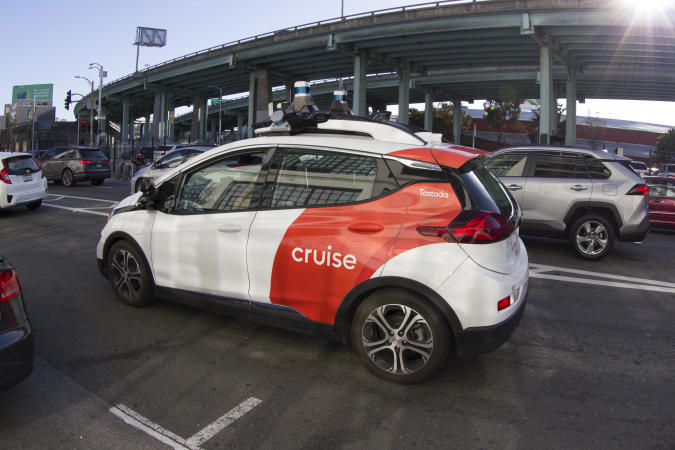
Cruise, an autonomous car company obtained by General Motors in 2016, has announced the launch of a careless car vehicle in San Francisco. The vehicle is offered to the public for free now, giving more people the opportunity to experience car technology driving alone – though, the company notes, only a small number of users will get access at first.
Cruise was founded in 2013, printed its first major development in 2016 with the acquisition of GM followed by an investment of $ 3.35 billion from Softbank and GM in 2018. In 2021, Cruise had boasted an assessment of more than $ 30 billion dollars with car technology Drive yourself in essence.
In the announcement on February 1, 2022, Cruise revealed now accepting registration from the interested driver who wanted to take one of the company’s self-driving cars to spin. The lucky participants will be given a vehicle in the car without a driver, which is equipped with technology that allows them to drive on the streets of the city themselves.
According to Cruise, some of his team members have boarded a vehicle in the company’s autonomous car, as well as some community members. The company shares its car video that drives itself with passengers in the back seat, maybe, it might help put the potential of future drivers comfortably.
Getting a ride in a Cruise self-driving car
If you are in San Francisco and want to experience a cruise trip, you can go to the company’s registration page to express your interests. Cruise notes that the initial travel capacity will be limited, but it will increase the number of vehicles offered to the public once more autonomous cars are available.
Cruise named each of his cars and said that “Poppy” was tapped to provide a public vehicle in San Francisco. The driver must be at least 18 years old, according to the registration page, which also requires interested parties, email, telephone OS, details about whether the trip will spare, and more.
It will still be aile before autonomous vehicles are a common way to get around. This technology has been in development and testing for years, and the opportunity for the public to ride the wind in this vehicle has increased. Partial driving automation has become more common in consumer car driving every day, also including features such as automatic braking and path assistance.
The early days in the industry were marked by very skeptical and hostile public perceptions – many of which expressed doubts about whether self-driving vehicles could safely navigate public roads that were unpredictable. However, this opinion can change, because the concept of autonomous transportation is growing and public demonstrations from more general technology.
In February 2021, AAA published a survey found while most of the driver in the US was eager to adopt automatic vehicle technology, only 22 percent of respondents were thought of by companies that had to establish their focus on creating a fully autonomous car. There is a big difference between partial autonomous vehicles and completely, but when AAA shows, the availability of developing automatic safety features can open the way for greater overall public acceptance in the future.
